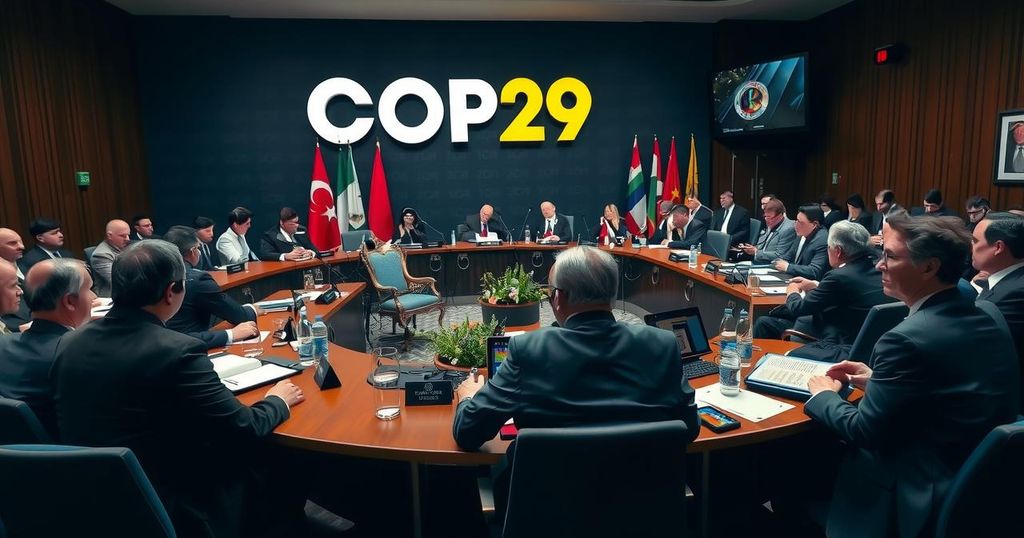COP29 concluded with an agreement on climate finance, where developed countries pledged at least $300 billion by 2035 to assist developing nations. The overall goal is to generate $1,300 billion for climate initiatives. While some leaders hailed this as progress, many developing nations expressed disappointment with the minimal contributions from wealthier countries, calling it a betrayal.
The recently concluded 29th Conference of the Parties (COP29) in Baku wrapped up over 32 hours past its initially scheduled time, culminating in a new international climate finance agreement. Developed nations have committed to raising a minimum of $300 billion by the year 2035, intending to assist developing countries in mitigating greenhouse gas emissions and adapting to climate change impacts. This initiative aims to mobilize up to $1,300 billion in total funding, including an additional amount sourced from private financing and alternative financial avenues. While this agreement signifies progress, it has drawn significant criticism from developing nations, which express disappointment over the insufficient contributions from wealthier countries.
Developing countries had anticipated a more substantial financial commitment from their counterparts in the developed world. Mohamed Adow, the director of Power Shift Africa, characterized the outcome as “a betrayal of people and the planet by rich countries who claim to take climate change seriously.” Host country Azerbaijan also faced scrutiny for allegedly prioritizing fossil fuel interests throughout the summit, with its president referring to fossil fuels as a “gift from God.” On the other hand, leaders from developed nations expressed optimism regarding the agreement. United States President Joe Biden labeled it as an “important step” in the fight against climate change, while EU climate commissioner Wopke Hoekstra stated, “COP29 will be remembered as the start of a new era for climate finance.”
The financial target established at COP29 supersedes the previous goal set at COP15 in Copenhagen, which called for $100 billion to be raised by 2020. The new commitment will undergo reviews in 2028 and 2030. The upcoming COP30, scheduled for Brazil in 2025, will focus on strategies to enhance climate finance further.
The Conference of the Parties (COP) is a critical annual gathering of nations under the United Nations Framework Convention on Climate Change (UNFCCC), aimed at addressing global climate change challenges. COP29 marks a significant milestone in the ongoing climate finance discourse, as countries grapple with their financial responsibilities to aid developing nations in climate adaptation and mitigation efforts. This summit also represents an opportunity for developed countries to reaffirm their commitments and accountability toward climate action. The agreed-upon financial target at COP29 not only seeks to replace the previously abandoned pledge from COP15 but also sets the stage for future funding mechanisms.
In conclusion, COP29 successfully established a new agreement that mandates developed nations to generate at least $300 billion toward climate finance initiatives by 2035. However, this outcome has not alleviated the concerns of developing countries, who feel the agreement falls short of expectations. The summit’s results underscore the ongoing tension between economic interests, particularly in fossil fuels, and the urgent need for substantive climate action, emphasizing the complexities involved in global climate negotiations.
Original Source: www.belganewsagency.eu






